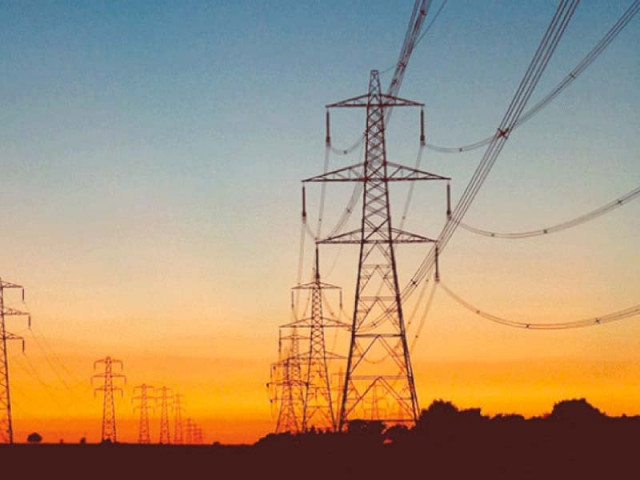Business
These 9 Common Money Mistakes Are Eating Your Income

Last Updated:
Chartered Accountant Nitin Kaushik suggested paying full credit card bills monthly and buying a house with EMIs under 30% of income to build wealth over 10-20 years

By avoiding these nine pitfalls, individuals can start saving money effectively. (Representative/Shutterstock)
In a wave of recent layoffs, major corporations such as Amazon, Google, Microsoft, and Apple have terminated thousands of employees, creating an atmosphere of job insecurity. This situation is particularly concerning for those who are the sole earners in their families, as managing household expenses on a single salary has become precarious.
Many individuals find their entire income consumed by household expenses, and even those with salaries of Rs 1 lakh or more often end up with empty pockets by month’s end.
Chartered Accountant Nitin Kaushik has identified nine common mistakes that significantly drain earnings, which he shared on social media.
Insurance Is Not Investment
The first and most significant mistake is treating insurance as an investment. People often purchase endowment plans or whole life policies, expecting both returns and protection. However, these options do not provide adequate returns or protection.
Instead, opting for a simple term insurance policy that offers coverage between Rs 50 lakh and Rs 2 crore for just Rs 500-1,000 per month and investing the remainder in mutual funds is advisable. Over 10-20 years, this money can grow substantially.
Co-Signing A Loan
The second mistake is co-signing a loan for a friend or relative. While trust may lead one to co-sign, missed payments by the borrower can negatively impact the co-signer’s credit score and make future loans more expensive. It is crucial to thoroughly evaluate before agreeing to co-sign any loan.
Paying Just The Minimum On Credit Cards
Another perilous habit is paying only the minimum amount due on credit cards. This practice incurs annual interest rates of 36-40 percent, turning a Rs 50,000 bill into over Rs 100,000 within two years. It is imperative to either pay the full bill or avoid using the card to avoid debt entrapment.
Investing Without Proper Knowledge
The fourth mistake is investing without comprehension. Whether it is in cryptocurrency, NFTs, or any guaranteed scheme recommended by a friend, if one cannot explain the investment in a single sentence, it is wise to steer clear.
Lifestyle Inflation
Increasing expenses immediately after a salary increment is another common error, known as lifestyle inflation. For instance, earning Rs 2 lakh and spending it all on luxury items like cars, phones, and dining out is detrimental.
Instead, investing Rs 1 lakh in mutual funds can potentially grow to Rs 10 lakh over 20 years. Wealth accumulation is tied to saving and investing, not merely earning.
Purchasing A New Car On Loan
The sixth mistake involves buying a new car on loan. A car’s value depreciates by 20 percent once driven out of the showroom, coupled with 5-7 years of EMI payments. Purchasing a car with cash or opting for a second-hand or smaller car is more prudent.
Putting All Money In A Single Investment
The seventh mistake is concentrating all money in a single investment. Diversification is key to mitigating risk, hence spreading investments across shares, mutual funds, gold bonds, and other assets is essential.
Opting For An Oversized Home Loan
Taking out a large home loan that consumes half of one’s salary in EMIs is the eighth error. This scenario restricts job mobility and the ability to relocate. Keeping EMIs below 25-30 percent of the salary and avoiding hefty home loans is recommended.
Taking Instant Loans
The ninth and most detrimental habit is taking payday or instant loans with exorbitant interest rates of 40-50 percent annually. Planning a budget and maintaining an emergency fund can avoid future financial ruin.
Adhering to the 50-30-20 rule, which allocates 50 percent to needs, 30 percent to entertainment, and 20 percent to savings, is beneficial.
By avoiding these nine pitfalls, individuals can start saving money effectively. Consistently paying the full credit card bill each month and purchasing a house only when financially stable with an EMI below 30 percent will contribute to wealth accumulation over 10-20 years, with minimal effort. While earning money is straightforward, saving and growing it is increasingly challenging.
November 15, 2025, 17:10 IST
Read More
Business
Stock market today: Nifty50 opens near 25,700; BSE Sensex flat in trade – The Times of India

Stock market today: Indian equity benchmarks opened flat in trade on Wednesday. While the 50-share index Nifty was near 25,700, the 30-share BSE Sensex was down marginally. At 9:16 AM, Nifty50 was trading at 25,716.35, down 9 points or 0.035%. BSE Sensex was at 83,438.94, down 12 points or 0.014%.Experts believe that the stock market is likely to remain steady with a positive undertone in the near term, supported by global trends.Dr. VK Vijayakumar, Chief Investment Strategist, Geojit Investments Limited says, “The better-than-expected Q3 results and indications of continuing momentum in earnings growth, going forward, are positive factors that will keep the market resilient. The volatility in IT stocks may continue, in response to incoming news relating to the sector. Overall, IT stocks may remain weak since uncertainty surrounding the sector is huge and large institutional investors are unlikely to invest big time in IT stocks, unless valuations become compelling. There can be churns away from IT towards other sectors like banking and financials, automobiles, telecom, pharmaceuticals etc where there is good earnings visibility.”“This is the time to gradually increase exposure to equity. But many retail investors are increasing investments in gold and silver ETFs, which is a risky game in the present context. Early signs of a shift in the investment strategy of FIIs are visible now. In the cash market, FIIs have been buyers in eight out of the last thirteen trading days. This trend and improving prospects for corporate earnings bode well for the market.“US equities ended marginally higher after a weak start to the session, helped by a rebound in technology stocks and support from financial shares. The recovery followed earlier volatility as investors assessed the outlook for artificial intelligence after recent turbulence that had pulled major indices away from record levels.Asian markets also posted modest gains in thin holiday trading. Investor sentiment remained cautious as markets continued to digest recent swings in global equities linked to concerns around AI-driven disruptions.(Disclaimer: Recommendations and views on the stock market, other asset classes or personal finance management tips given by experts are their own. These opinions do not represent the views of The Times of India)
Business
DISCOs seek additional Rs10.8b | The Express Tribune

Iesco stood on top in the wake of its plausible performance to curb losses, improve recoveries and act in line with the time frame for new connections. PHOTO: FILE
ISLAMABAD:
The National Electric Power Regulatory Authority (Nepra) on Tuesday held a public hearing on the second quarterly adjustment for the current fiscal year, where power distribution companies (DISCOs) sought additional charges of Rs10.76 billion that could translate into a nationwide tariff hike of 43 paisa per unit, including K-Electric. Electricity companies pressed for recovery of costs mainly linked to the capacity payments made between October and December 2025.
Officials told the regulator that Rs24.25 billion was being sought under capacity payments for the Oct-Dec quarter. However, Nepra was also informed of a reduction of about Rs13.5 billion in other components, including operations and maintenance, use-of-system charges and the so-called incremental consumption package.
Nepra officials said the net impact of the adjustment could result in a tariff increase of 43 paisa per unit, but stressed that the authority would review the figures before making a final decision. Any determination will be applicable to consumers across the country.
The hearing drew strong criticism from consumer representatives, who accused the government of shifting the burden of flawed policies on to the general public. Several participants said the incremental consumption package was benefiting selective industries while harming others, arguing that the data shared under the scheme was misleading.
“Without real growth in industrial demand, how can consumers benefit from such incentives?” a hearing participant asked, urging Nepra to reassess the figures submitted by the Central Power Purchasing Agency (CPPA).
CPPA officials said around Rs431 billion in capacity payments would be required for the quarter, compared with Rs459 billion needed by distribution companies in the previous year. Of the total capacity payments to the independent power producers (IPPs), there was a shortfall of Rs24 billion due to low electricity consumption, which would be recovered from the consumers. They also told the regulator that furnace oil-based power plants would not be operated in the future as the government shifted away from costly generation sources.
Business
Netflix grants Warner Bros. Discovery 7-day waiver to reopen deal talks with Paramount Skydance

Warner Bros. Discovery on Tuesday said it will reopen deal talks with Paramount Skydance under a seven-day waiver from Netflix to explore “deficiencies” in Paramount’s offer to buy the entirety of WBD.
The legacy media company has a pending transaction with Netflix for its streaming and studio businesses. Paramount launched a hostile tender offer straight to WBD shareholders at $30 per share after losing out to Netflix in a bidding war.
“Netflix has provided WBD a limited waiver under the terms of WBD’s merger agreement with Netflix, permitting WBD to engage in discussions with Paramount Skydance (“PSKY”) (NASDAQ: PSKY) for a seven-day period ending on February 23, 2026 to seek clarity for WBD stockholders and provide PSKY the ability to make its best and final offer,” Warner Bros. Discovery said in a release.
“During this period, WBD will engage with PSKY to discuss the deficiencies that remain unresolved and clarify certain terms of PSKY’s proposed merger agreement,” it said.
Paramount leadership has repeatedly said its $30 per share, all-cash offer is not its “best and final.” Last week the company sweetened its offer with additional “enhancements,” but stopped short of raising the per-share value.
Warner Bros. Discovery said Tuesday that a senior Paramount representative informed a WBD board member that it would pay $31 per share if deal talks were to reopen.
Tune in at 4:30pm ET as Netflix co-CEO Ted Sarandos joins CNBC TV. Watch in real time on CNBC+ or the CNBC Pro stream.
After the limited waiver period, Netflix will retain its matching rights provided by the merger agreement, WBD said.
“Throughout the entire process, our sole focus has been on maximizing value and certainty for WBD shareholders,” said WBD CEO David Zaslav in a statement. “Every step of the way, we have provided PSKY with clear direction on the deficiencies in their offers and opportunities to address them. We are engaging with PSKY now to determine whether they can deliver an actionable, binding proposal that provides superior value and certainty for WBD shareholders through their best and final offer.”
WBD also on Tuesday announced a special meeting of shareholders will be held on March 20 and said its board continues to unanimously recommend the Netflix deal over Paramount’s offer.
Netflix said in a statement the shareholder meeting date marked an “important milestone for our transaction with WBD.”
“While we are confident that our transaction provides superior value and certainty, we recognize the ongoing distraction for WBD stockholders and the broader entertainment industry caused by PSKY’s antics,” Netflix said. “Accordingly, we granted WBD a narrow seven-day waiver of certain obligations under our merger agreement to allow them to engage with PSKY to fully and finally resolve this matter.”
Shares of Warner Bros. Discovery were up about 3.5% Tuesday. Shares of Paramount were up about 6%.
Raising regulatory concerns
Either proposed purchase of Warner Bros. Discovery assets comes with regulatory questions.
Media industry insiders and lawmakers have questioned whether Netflix’s proposed deal would win approval as it would bring together two of the top streaming services and could result in higher prices for consumers.
Netflix leadership has repeatedly said the company believes it would win regulatory approval for the deal because it would preserve jobs in a challenged media landscape rife with layoffs.
Paramount has sounded the alarm to WBD shareholders, however, and argues its offer is not only better but would more easily garner government support.
On the flipside, Paramount’s offer has raised questions of foreign funding and antitrust considerations in bringing together two large portfolios of pay TV channels and two major film studios.
Paramount’s deal is financed in part by sovereign wealth funds of Saudi Arabia; Abu Dhabi, United Arab Emirates; and Qatar. Paramount has said those entities have agreed to forgo any governance rights.
In its statement on Tuesday, Netflix called out the foreign funding, which it said it expects to come under scrutiny from international regulators, including the Committee on Foreign Investment in the United States (CFIUS). Netflix said it also expects European authorities “to scrutinize the Middle Eastern investors in PSKY’s consortium and to be skeptical of claims that they are purely passive investors.”
Given Europe’s track record of antitrust enforcement, it’s possible regulatory battles for either deal would be won or lost in that market. Of course, the question still looms of how President Donald Trump will view either transaction. Trump recently said he hadn’t been involved in the process so far and didn’t plan to be, though he has reportedly met with executives from each camp.
Netflix’s statement on Tuesday “unsurprisingly points to a number of arguments Netflix believes it has in its favor,” according to an analyst note from Raymond James on Tuesday, “including better prospects for approval, a clearer national security picture, and financial security.”
-

 Business1 week ago
Business1 week agoAye Finance IPO Day 2: GMP Remains Zero; Apply Or Not? Check Price, GMP, Financials, Recommendations
-

 Fashion1 week ago
Fashion1 week agoComment: Tariffs, capacity and timing reshape sourcing decisions
-

 Business7 days ago
Business7 days agoGold price today: How much 18K, 22K and 24K gold costs in Delhi, Mumbai & more – Check rates for your city – The Times of India
-

 Tech1 week ago
Tech1 week agoRemoving barriers to tech careers
-

 Fashion1 week ago
Fashion1 week agoSaint Laurent retains top spot as hottest brand in Q4 2025 Lyst Index
-

 Business5 days ago
Business5 days agoTop stocks to buy today: Stock recommendations for February 13, 2026 – check list – The Times of India
-

 Fashion5 days ago
Fashion5 days ago$10→ $12.10 FOB: The real price of zero-duty apparel
-

 Entertainment1 week ago
Entertainment1 week ago‘Harry Potter’ star David Thewlis doesn’t want you to ask him THIS question











